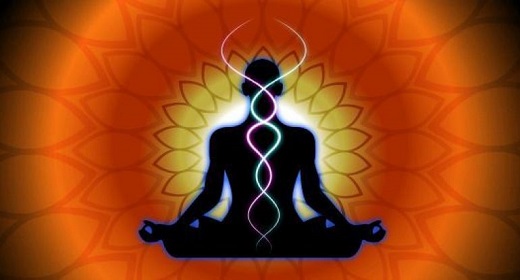Awaken: Firstly, thank you for so graciously sharing your wisdom with our awakened readers today.
 I first came to your work through my interest in Zen, and was surprised to find that you are mostly known as a Trappist monk. It was refreshing to learn that despite your allegiance to the Catholic church, you have a very deep appreciation for Zen and all things mystical, whatever the origin may be. Given our name, AWAKEN, we love to explore the idea of awakening, Or if you prefer, enlightenment. I would like to start by getting your input on this, first from a Zen perspective and then from the Christian perspective…
I first came to your work through my interest in Zen, and was surprised to find that you are mostly known as a Trappist monk. It was refreshing to learn that despite your allegiance to the Catholic church, you have a very deep appreciation for Zen and all things mystical, whatever the origin may be. Given our name, AWAKEN, we love to explore the idea of awakening, Or if you prefer, enlightenment. I would like to start by getting your input on this, first from a Zen perspective and then from the Christian perspective…
Thomas Merton: Zen enlightenment is an insight into Being in all its existential reality and actualization. It is a fully alert and super conscious act of Being which transcends time and space. Such is the attainment of the “Buddha mind,” or “Buddhahood.” The Zen insight is the awareness of full spiritual reality, and therefore the realization of the emptiness of all limited or particularized realities.
Zen insight is at once a liberation from the limitations of the individual ego, and a discovery of one’s “original nature” and “true face”… Zen insight is not our awareness, but Being’s awareness of itself in us.
Awaken: By breaking free of the limitations of our own individual ego, we enter into what Buddhism calls the no self… which is a kind of limitlessness, isn’t it? But don’t both traditions embrace this notion of the unlimited self in their own way?
Thomas Merton: With all due deference to the vast doctrinal differences between Buddhism and Christianity, and preserving intact all respect for the claims of the different religions: in no way mixing up the Christian “vision of God“ with Buddhist “enlightenment,” we can nevertheless say that the two have this psychic “limitlessness” in common. And they tend to describe it in much the same language. It is now “emptiness,” now “dark night,” now “perfect freedom,” now “no mind,” and now “poverty”…
Zen calls it emptiness, Sunyata, or “suchness.” The mature grasp of the primordial emptiness in which all things are one is Prajna, wisdom. This wisdom is the direct experience not of the “One” and the “Absolute” in the abstract, but of “the Self” or “the Buddha nature.”
Awaken: So, it is a realization of what Buddha called Anatman (no self)… which really means “I am everything?”
Thomas Merton: In Zen enlightenment, The discovery of the “original face before you were born” is the discovery not that one sees Buddha but that one is Buddha and that Buddha is not what the images in the temple had led one to expect: for there is no longer any image, and consequently nothing to see, no one to see it, and a void in which no image is even conceivable. The true seeing… is when there is no seeing.
Awaken: And the Christian equivalent?
Thomas Merton: Being of one Spirit with Christ.
Awaken: Could you expound on that just a bit?
Thomas Merton: The Christian can say: “I live, now not I, but Christ liveth in me. And that I live now in the flesh, I live in the faith of the son of God who loved me” (Galatians 2:20).
Awaken: And yet, I have read Buddhist accounts of the experience of Nirvana, which ring similarly, especially in terms of becoming one with the Buddha and with everything, albeit without the language of “God.”
Thomas Merton: In a sense, Nirvana is beyond experience. Yet it is also the “highest experience” if we see it as liberation from merely psychological imitations.
Awaken: So, in a word, how may we articulate the difference between the Christian notion of being one in Christ and the Buddhist notion of Nirvana?
Thomas Merton: Christian charity seeks to realize oneness with the other “in Christ.” Buddhist compassion seeks to heal the brokenness of division and illusion and to find wholeness not in an abstract metaphysical “one”… but in Nirvana — the void which is Absolute Reality and Absolute Love.
Awaken: Would you explain “Love,” in this context?
Thomas Merton: The words “experience of love” must not be understood in terms of emotional fulfillment, of desire and possession, but a full realization, total awakening — a complete realization of Love, not merely as the emotion of a feeling subject but as the wide openness of Being itself, the realization that Pure Being is Infinite Giving, or that Absolute Emptiness is Absolute Compassion. This realization is not intellectual, not abstract, but concrete. It is, in Christ’s words, “Spirit and Life”… not simply the awareness of a loving subject… but the awareness of the Spirit of Love as the source of all that is, and all love.
Awaken: And in both traditions, this realization of Absolute Love requires the dissolution of the self?
Thomas Merton: In either case, the highest illumination of love is an explosion of the power of Love’s evidence in which all the psychological limits of an “experiencing” subject are dissolved and what remains is the transcendent clarity of love itself, realized in the ego-less subject in a mystery beyond comprehension but not beyond consent.
The only salvation, as Christ said, is found in losing oneself — that is, by opening oneself to the other as another self. One does not attain to Nirvana by subtle and patient meditation, by experimenting with Zen koans, by interminable sitting, by wheedling a secret answer out of some spiritual expert, by taming the body in various Tantric ways. Nirvana is the extinction of desire and the full awakening that results from this extinction. It is not simply the dissolution of all ego-limits, a quasi-infinite expansion of the ego into an ocean of self satisfaction and annihilation. This is the last and worst illusion of the ascetic who, having “crossed to the other shore,” says to himself with satisfaction: “I have at last crossed to the other shore.” He has, of course, crossed nothing. He is still where he was, as broken as ever. He is in the darkness of Avidya(ignorance). He has only managed to find a pill that produces a spurious light and deadens a little of the pain.
Awaken: So in reality, enlightenment is not found in the renunciate’s life… But right here right now, amidst our everyday activities?
Thomas Merton: Enlightenment is not a matter of trifling with the facticity of ordinary life and spiriting it all away. As the Buddhists say, Nirvana is found in the midst of the world around us, and truth is not somewhere else. To be here and now where we are in our “suchness” is to be in Nirvana…
Awaken: What a beautiful thing! Even though we call it by different names in different traditions, it is really all about “realizing the divine within,” no matter where we stand… no matter whether we call ourselves a Christian or a Buddhist…
Thomas Merton: If a Christian mystic has an experience which can be phenomenologically compared with a Zen experience, does it matter that the Christian in fact believes he is personally united with God and the Zen-man interprets his experience as Sunyata or the Void being aware of itself?
Awaken: Indeed. So it is couched in different terms, but comparable in experience?
Thomas Merton: A fuller and truer expression of Zen in Christian experience is given by Meister Eckhart. He admits that: “To be a proper abode for God and fit for God to act in, a man should also be free from all things and actions, both inwardly and outwardly.”
Awaken: “God” takes the place of emptiness?
Thomas Merton: Christianity is based on supernatural revelation… Christianity is a religion of grace and divine gift, hence of total dependence on God.
Awaken: May we inquire into that for a moment? How does the taking of God into our hearts manifest in our lives?
Thomas Merton: If we have the Spirit of God in our hearts, we will live by his law of charity, inclined always to peace rather than dissension, to humility rather than arrogance, to obedience rather than rebellion, to purity and temperance, to simplicity and quietness and calm, to strength, generosity, and wisdom, to prudence and all embracing justice, and we will love others more than ourselves, for it is the commandment of Jesus that we should love one another as he has loved us (John 15:12).
Awaken: What would you say to the idea that despite their many differences, it is entirely possible to find common ground within the different religions of the world?
Thomas Merton: To put it in grossly oversimplified language, all religions aspire to a “union with God” in some way or other, and in each case this union is described in terms which have very definite analogies with the contemplative and mystical experiences in the Christian, and particularly the Catholic, tradition.
Awaken: What is the most powerful pathway into this union?
Thomas Merton: Prayer… inspired by God in the depths of our own nothingness. It is the movement of trust, of gratitude, of adoration, or of sorrow that places us before God, seeing both Him and ourselves in the light of his infinite truth, and moves us to ask him for the mercy, the spiritual strength, the material help that we all need.
Awaken: My grandmother taught me to pray when I was a girl, and I still find it to be the most consoling and the most soothing thing for my soul, during challenging moments. But I have seen that some people feel funny about praying, especially if they haven’t been brought up with it…
Thomas Merton: The man who never prays is one who has tried to run away from himself because he has run away from God. But unreal though he be, he is more real than the man who praised God with a false and lying heart. As a man is, so he prays. We make ourselves what we are by the way we address God.
Most of the world is either asleep or dead. The religious people are, for the most part, asleep. The irreligious are dead.
Awaken: I’m glad you said that… Just because someone is religious doesn’t mean that their hearts are open… they may be simply going through the motions of prayer without feeling…
Thomas Merton: There are many levels of attention in prayer. First of all, there is purely exterior attention. We “say prayers” with our lips, but our hearts are not following what we say, although we think we would like to mean what we are saying. If we do not cultivate something better than this, we will seldom really pray. If we are quite content to pray without paying attention to our prayer or to God, it shows we have not much idea of who God is, and that we do not really appreciate the grace and the privilege of being able to speak to Him in prayer. For prayer is a gift of God, a gift which is by no means given to all men. Perhaps it is given to few because so few desired, and of those who have received it, so few have received it with gratitude.
Awaken: But there is a deeper level…
Thomas Merton: Then there is the prayer that is well used: words or thought serve their purpose and lead our minds and hearts to God, and in our prayer we receive light to apply these thoughts to our own problems and difficulties, to those of our friends, or to those of the church. But sometimes this prayer, which is, of course, valid, leaves our hearts unsatisfied because it is more concerned with our problems, with our friends, and ourselves, then it is with God. However, if we are humble men, we will be grateful for ever so little light in our prayer, and will not complain too much, for it is a great thing to receive even a little light from so great a God.
Awaken: And so there is a deeper level still?
Thomas Merton: There is a better way of prayer, a greater gift from God, in which we pass through our prayer to Him, and love Him. We taste the goodness of His infinite mercy… we enter this into a great mystery which cannot be explained, but only experienced. But in this prayer we still remain conscious of ourselves, we can reflect upon ourselves, and realize that we are the subjects of this great experience of love, as well as the objects of God‘s love.
Awaken: To surrender ourselves in this way, through prayer, do we need to be impelled by the desperation that comes from the proverbial “dark night of the soul?” In other words, do we need to suffer first?
Thomas Merton: Only the man who has had to face despair is really convinced that he needs mercy. Those who do not want mercy never seek it. It is better to find God on the threshold of despair than to risk our lives in a complacency that has never felt the need of forgiveness. A life that is without problems may literally be more hopeless than one that always verges on despair.
Awaken: So, it’s that inner longing, that hope for liberation that ultimately drives us into spirit?
Thomas Merton: Hope seeks not only God in himself, not only the means to reach him, but it seeks finally and beyond all else, God’s glory revealed in ourselves. This will be the final manifestation of His infinite mercy, and this is what we pray for when we say “Thy Kingdom come.”
Awaken: You spoke a moment ago about “loving” God. These days, we observe so much narcissism among people. So much self-centeredness and self absorption. Can you speak to this point, and does this tendency preclude the ability to love others, and also, to love God in the way that you described?
Thomas Merton: There is a false and momentary happiness in self-satisfaction, but it always leads to sorrow because it narrows and deadens our spirit.
A happiness that is sought for ourselves alone can never be found: for a happiness that is diminished by being shared is not big enough to make us happy.
True happiness is found in unselfish love, a love which increases in proportion as it is shared. There is no end to the sharing of love, and, therefore, the potential happiness of such love is without limit. Infinite sharing is the law of God’s inner life. He has made the sharing of ourselves the law of our own being, so that it is in loving others that we best love ourselves.
Awaken: You are saying that happiness itself depends on sharing love?
Thomas Merton: It is not enough for love to be shared: it must be shared freely. That is to say it must be given, not merely taken. Unselfish love that is poured out upon a selfish object does not bring perfect happiness: not because love requires a return or a reward for loving, but because it rests in the happiness of the beloved. And if the one loved receives love selfishly, the lover is not satisfied. He says that his love has failed to make the beloved happy. It has not awakened his capacity for unselfish love.
Awaken: So ironic… that if you even receive love in a selfish spirit, then that which has been received will fail to satisfy! So, both giving and receiving have to be heartfelt and selfless… and this is the key to happiness and pure love?
Thomas Merton: Hence the paradox that unselfish love cannot rest perfectly except in a love that is perfectly reciprocated: because it knows that the only true peace is found in selfless love. Selfless love consents to be loved selflessly for the sake of the beloved. In so doing, it perfect itself.
The gift of love is the gift of the power and the capacity to love, and, therefore, to give love with full effect is also to receive it. So, love can only be kept by being given away, and it can only be given perfectly when it is also received.
Awaken: And true love seeks nothing in return…
Thomas Merton: Love seeks one thing only: the good of the one loved. It leaves all the other secondary effects to take care of themselves. Love, therefore, is its own reward. To love another is to will what is really good for him.
Awaken: In circling this around, I have found that prayer is incomparable in its power to diminish angst, worry and anxiety. Can you speak to this point?
Thomas Merton: Anxiety eats into the heart of faith. Anxiety usually comes from strain, and strain is caused by dependence on ourselves, on our own devices, our own plans, our own idea of what we are able to do.
Awaken: And that is the power of genuine surrender…
Thomas Merton: Our soul is set free from preoccupation with itself…
Awaken: On that note, dear Thomas, I thank you with all my heart for so generously sitting with me today and sharing your wisdom with our appreciative readers!
This is one of Awaken’s Dream Interviews, conducted by Donna Quesada, and All Answers are Verbatim from Thomas Merton.
















































